With the recent rain falls and the rays of sun, the garden is looking very green and luscious! If you haven’t had chance to stop by (which you should definitely do during our open volunteer hours Tuesday 12-2 PM and Thursday 4:30-6:30 PM) and roam through the rows and rows of sprouting veggies, here are some updates! Our lettuce, radishes, kale, and chard are pluggin’ away and giving us lots to share! Snap peas practically popped out overnight this week with some impressive 5-inchers! And we had our first two squash after the wonderful rain!
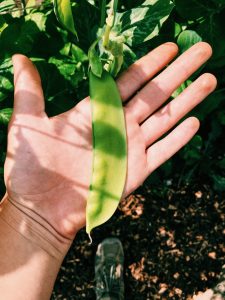
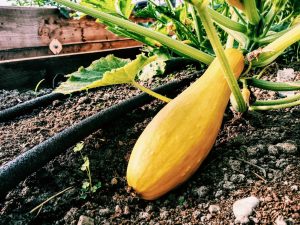
With such a great abundance, we have been harvesting for some very successful farm stands as well as for Chartwells, the dining service at Colgate, and the Food Cupboard located in Hamilton. Through all these sales and donations, we have been meeting many wonderful people and we are so thankful for all their help and the connections we’ve made. We would like to thank all of our farm stand regulars, our generous community plot members for words of encouragement (and delicious donuts!), and Chartwells dining services for supporting local food.
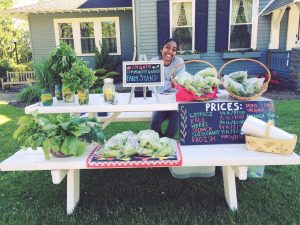
We would also like to give a big shout out to all our weekly volunteers, and namely our volunteer group from the library. Last week, a group of library staff members came down to be out in the sun for a few hours and give us a helping hand. They mulched, weeded, and planted parsley and brussel sprouts! To cool off and relax after their hard work, they sat in the shade and were able to paint some of the most beautiful and unique rocks our garden has ever seen. The garden looked so healthy and lively after they left and we are so grateful for all the time and energy they put in.
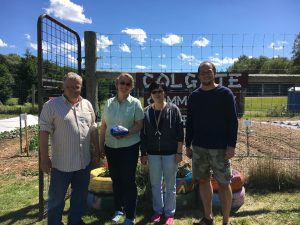

Our next work party will be Wednesday July 6th from 5-7pm. Come to garden, enjoy good vibes, and eat delicious (and garden-sourced) food! And we are happy to announce that our Farm Stand is officially every Tuesday from 4:30-6:30 in front of Trudy Fitness Center right across from the Sanford Fieldhouse. On rainy days, we’ll be located inside Trudy at the sign-in desk! Hope to see you there! And remember to stay fresh and eat local!



 The annual, and much anticipated, Spring Party Weekend (SPW) is a mere week away. While the weekend is known for its live music, dancing and free food, there are a number of sustainability concerns that stem from the event-filled weekend. One of the main concerns: the great amount of waste.
The annual, and much anticipated, Spring Party Weekend (SPW) is a mere week away. While the weekend is known for its live music, dancing and free food, there are a number of sustainability concerns that stem from the event-filled weekend. One of the main concerns: the great amount of waste.
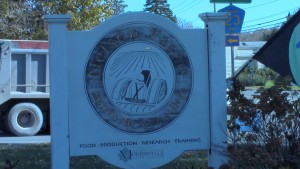 By: Mackenzie Hargrave ’16 (Environmental Economics Major from Madison, NJ), Sustainable Dining Intern
By: Mackenzie Hargrave ’16 (Environmental Economics Major from Madison, NJ), Sustainable Dining Intern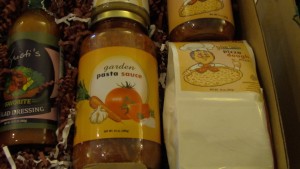 gredients maintain the appropriate pH, they must be carefully coded and tracked, according to FDA regulation.
gredients maintain the appropriate pH, they must be carefully coded and tracked, according to FDA regulation.
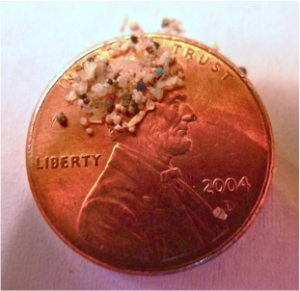 such as dioxins and volatile organic chemicals found in our waters due to pesticides and industrial
such as dioxins and volatile organic chemicals found in our waters due to pesticides and industrial 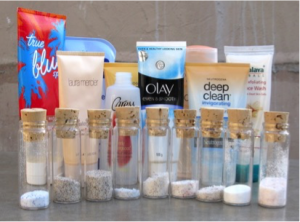 Fortunately, California passed a law in October that should ultimately set a nation wide stringent standard for plastic microbead production. Governor Jerry Brown approved Assemblyman Richard Bloom’s (D- Santa Monica) measure that will place a ban on exfoliating microbeads in personal care products as of January 1st, 2020. The passage of this law in California is a large step forward for environmentalists, according to
Fortunately, California passed a law in October that should ultimately set a nation wide stringent standard for plastic microbead production. Governor Jerry Brown approved Assemblyman Richard Bloom’s (D- Santa Monica) measure that will place a ban on exfoliating microbeads in personal care products as of January 1st, 2020. The passage of this law in California is a large step forward for environmentalists, according to 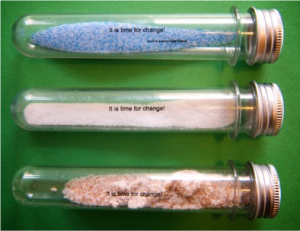 overwhelmingly voted 139-0 in favor of the ban, but again it never reached the floor in the Senate. However,
overwhelmingly voted 139-0 in favor of the ban, but again it never reached the floor in the Senate. However, 
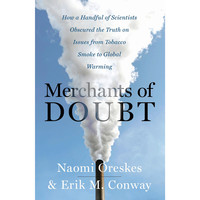 Movie Theater. Seating is limited and tickets will be given on a first-come, first-served basis. Tickets are FREE and can be picked up in the Ho Science Center room 245 (Steve Dickinson’s office) or in Lathrop Hall room 109M (John Pumilio’s office).
Movie Theater. Seating is limited and tickets will be given on a first-come, first-served basis. Tickets are FREE and can be picked up in the Ho Science Center room 245 (Steve Dickinson’s office) or in Lathrop Hall room 109M (John Pumilio’s office).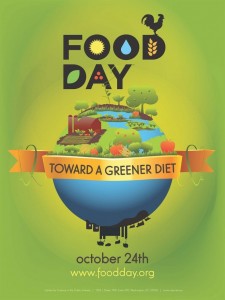
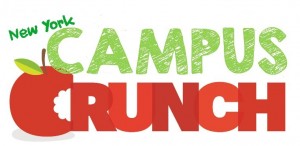 On Thursday, October 22nd Colgate will join campuses throughout the state to take the New York Campus Crunch. Local apples will be distributed at Frank Dining Hall, The Coop, and Hieber Café for a “collective crunch” at 1pm. Come out to support New York apples and the orchards and farms our food is grown on.
On Thursday, October 22nd Colgate will join campuses throughout the state to take the New York Campus Crunch. Local apples will be distributed at Frank Dining Hall, The Coop, and Hieber Café for a “collective crunch” at 1pm. Come out to support New York apples and the orchards and farms our food is grown on.